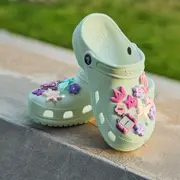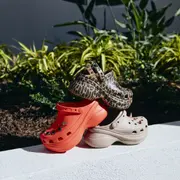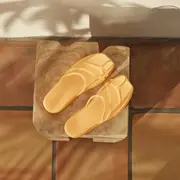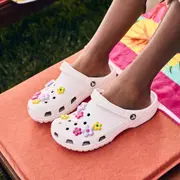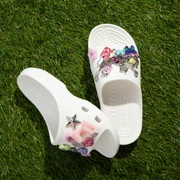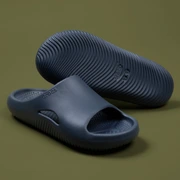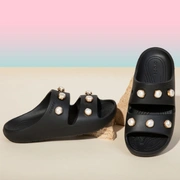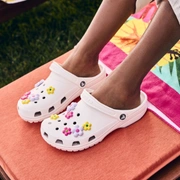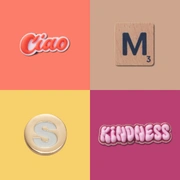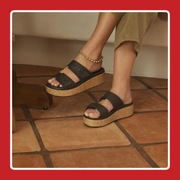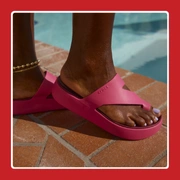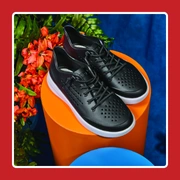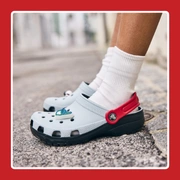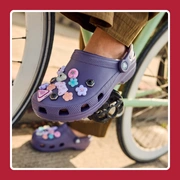Treading More Lightly

Our Shoe Of The Future
While providing all the comfort you expect from Crocs, we are incorporating waste from other industries (like cooking oil) that are certified as bio-circular by ISCC PLUS*, to produce our innovative Croslite™** resin.
As of September 2024***, we are proud to have integrated 25% bio-circular material to produce our Croslite™ resin (mass balance, certified by ISCC PLUS).
By 2030, our goal is to integrate 50% bio-circular material to produce our Croslite™ resin.
* Founded in 2010 through a multi-stakeholder initiative, the International Sustainability and Carbon Certification (ISCC) is a globally applicable and certification system designed to enhance traceable, sustainable, deforestation-free, and climate-friendly supply chains. ISCC certifications are widely recognised and cover sustainable agricultural biomass, biogenic wastes and residues, non-biological renewable materials and recycled carbon-based materials. The development and implementation of different certification standards is ISCC’s tool to promote its mission to mitigate climate change and bring more traceability into global markets and supply chains. The ISCC PLUS standard, in particular, supports the transition to a circular economy and bioeconomy. This voluntary certification standard validates the sustainability characteristics of alternative feedstocks throughout the entire supply chain, from origin to end consumer.
**Which represents approximately 80% of all the raw materials we purchase and produce.
*** Calculated annually by mass balance, and certified by ISCC PLUS for Crocs products using Croslite™ sold globally.
An Even Lower Footprint
Our inherently simple design approach, the materials we use, and the way our shoes are produced mean that our Classic Clog already has a low carbon footprint*. We plan to reduce it even further by focusing on innovative materials and the efficiency of our production and distribution chain. Our most recent Life Cycle Assessment established that a pair of Classic Clogs has a carbon footprint of 2.02kg CO2e. By increasing the amount of bio-circular material in our Croslite™ resins, we have reduced the Classic Clog's carbon footprint by 6.1% compared to our 2021 baseline**.
By 2030, we intend to reduce the carbon footprint of our Classic Clog by 50% compared to our 2021 baseline.
According to a study conducted by MIT researchers, the average carbon footprint of a pair of shoes is 30 lbs CO2e, or 14 kg CO2e. In 2021, we used the Higg Product Module 1.0 to calculate the carbon footprint of a pair of Classic Clogs at 2.56 kg CO2e using the most conservative material emissions factors at the time. These calculations were conducted internally, using industry-recognized sample sizes, and represent a cradle-to-grave impact.
**A Life Cycle Assessment (LCA) was conducted by a third-party environmental consultancy and certified by SGS. This LCA is based on primary data from fiscal year 2023, including 17.3% bio-circular content in our Croslite™ resins on a mass balance basis. Bio-circular Croslite™ material has a lower carbon footprint than standard fossil fuel-based Croslite™ material.


Packaging Light, Packaging Right
We ship to our fans all over the world and are making strides to reduce our environmental impact.
The majority of our shoes are packaged in a product polybag, which has an 85% lower carbon footprint than a shoe box.* In 2023, we took steps to reduce our reliance on virgin materials and transition our primary polybag to 100% recycled content, which customers will begin to see in late 2024!
*This comparative metric was made against a shoebox containing 85% recycled cardboard, 15% market mix cardboard, and weighing 180 grams and calculated using the Higg Materials Sustainability Index (Higg MSI at higg.org) V3.7 developed by the Sustainable Apparel Coalition, a cradle-to-gate material assessment tool that calculates environmental impacts of materials. The calculation was completed in 2024 by Crocs, Inc. and is not verified by a third party.
*Our LDPE product polybags are made from 100% post-industrial recycled content.
Still 100% Vegan
Since 2021, we’ve eliminated all animal derived materials from our products. We are a proud winner of PETA’s 2022 Libby Award.



